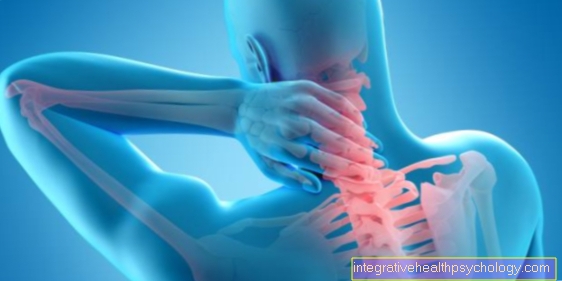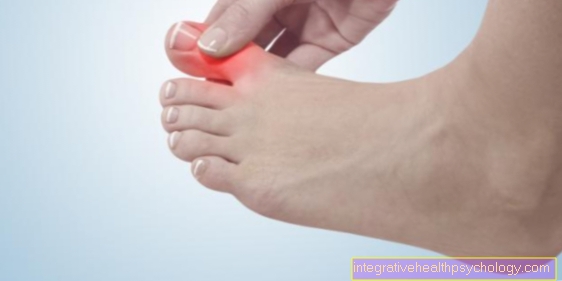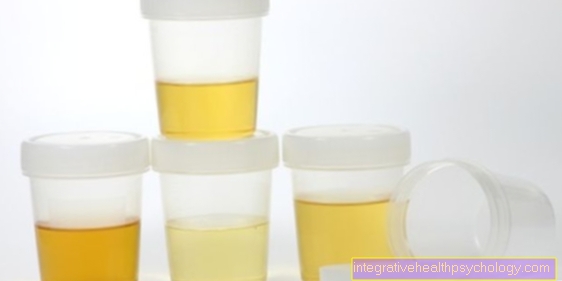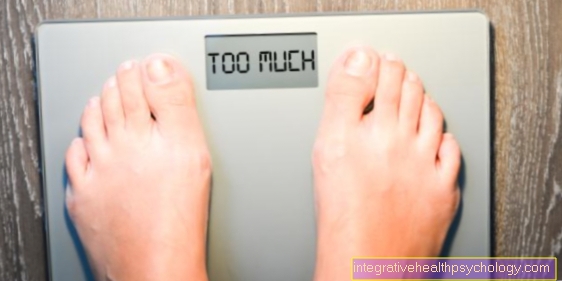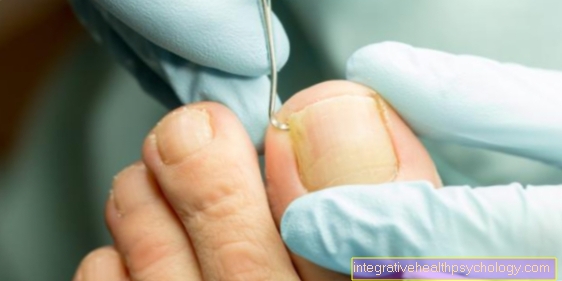Stool transplant
What is a stool transplant?
A stool transplant is the transfer of stool or the bacteria contained in stool from a healthy donor into a patient's bowel. The aim of stool transplantation is to restore the irreparably damaged intestinal flora of the patient and thus to create or at least promote a physiological, i.e. healthy microbiome.
The procedure, which has so far only been used under strict indications, falls under the umbrella term of microbiome transfer. All methods of transferring bacteria-containing material from one individual to another are referred to as such. Common synonyms for stool transplantation are "stool transfusion" and also "fecal microbiota transplantation" (FMT).

Who are stool transplants suitable for?
To date, stool transplants have not been officially approved as a form of therapy, but are considered to be an "individual healing attempt" if indicated accordingly.
The only common use is in the case of a symptomatic intestinal infection by the bacterium Clostridium difficile. This intestinal inflammation is also known as pseudomembranous colitis. This occurs primarily as a result of lengthy antibiotic therapy on the ward, which damaged the natural, healthy intestinal flora. Clostridia, which are resistant to many frequently used antibiotics, are given an artificially generated selection advantage and can multiply undisturbed.
Another prerequisite for a stool transplant is the failure of all other usual attempts at therapy. In this case, the indication of "therapy-refractory CDAD" (Clostridium difficile-associated diarrhea). Apart from this, a number of other possible indications are currently being investigated. There is subtle evidence that a stool transplant can also be helpful for chronic inflammatory bowel disease or even irritable bowel syndrome.
Stool transplant for irritable bowel syndrome
Now that the treatment of clostridial infection of the small and large intestine by means of a stool transplant has become more and more established, research is increasingly interested in the treatment of other (intestinal) diseases using the method. The main focus is on the chronic inflammatory bowel diseases Crohn's disease and ulcerative colitis.
But also in the case of irritable bowel syndrome there is hope of being able to help the patient by bringing healthy donor stools into the intestines. Since the cause of irritable bowel syndrome is still largely unexplained and the term irritable bowel syndrome actually seems to be a collective term for various diseases, a great deal of research is still required on the subject. There are virtually no studies, case collections or experiences of treating irritable bowel syndrome with a stool transplantation worth mentioning.
Read more about this under Irritable Bowel Syndrome Treatment
Stool transplant for ulcerative colitis
Current successes in the treatment of chronic Clostridium difficile infections are not only nourishing the hope of a cure or at least an alleviation of symptoms in irritable bowel syndrome patients. Research is also currently being carried out into the treatment of the chronic inflammatory bowel diseases Crohn's disease and ulcerative colitis by means of a stool transplant.
Most of the controlled studies that have been carried out to date have, however, produced mostly disappointing results. Only in children did a study in a small group of patients show a clear clinical response. In order to be able to make more precise statements about this, a few more years and studies will have to pass.
Read more about this under Therapy ulcerative colitis
Stool transplant for Crohn's disease
While a stool transplant was initially only performed in patients with untreatable diarrhea caused by a bacterial infection with Clostridium difficile (CDAD), there are now individual studies examining the effectiveness of stool transplants in inflammatory bowel diseases (including Crohn's disease).
Initial study results show that stool transplants are effective in Crohn's patients. So far, however, there is insufficient data on the effect and possible side effects. More studies are needed before stool transplantation can also be approved for the treatment of Crohn's disease.
Stool transplantation for multiple sclerosis
Individual studies have shown that altered intestinal flora increases the risk of a special form of multiple sclerosis (MS). At the same time, there is an increased concentration of specific bacteria in the intestine in MS patients. For this reason, a stool transplant is seen as a possible therapy option for treating multiple sclerosis. For this purpose, individual studies have been initiated, although the first results are still pending and the effectiveness of stool transplantation in multiple sclerosis has not yet been proven.
Does a stool transplant make sense to lose weight if you are overweight?
Studies on mouse models have shown a connection between body weight and the intestinal flora. Normal-weight mice that received the stool transplanted from obese mice also became overweight.
This discovery initiated individual studies to investigate stool transplantation as a therapeutic option for the treatment of obesity. The first results on the effectiveness of a stool transplant for obesity are still pending. For this reason, stool transplantation is currently not yet a therapeutic option for weight loss. Numerous further examinations and studies are required for the treatment of obesity with stool transplantation.
execution
Performing a stool transplant begins with processing stool from a healthy donor. For this purpose, the donor stool is diluted with a physiological saline solution and then filtered, whereby it is cleaned of superfluous components such as the indigestible fiber and dead bacteria.
In most cases, the suspension produced in this way is then introduced into the patient's duodenum via a probe previously placed by endoscopy (mirroring).
Another possibility is the introduction of bacteria into the large intestine by means of colonoscopy (colonoscopy).
Read more about this under The course of a colonoscopy
In order to create the best possible conditions for colonization of the intestines by the new bacteria, the clostridial infection is usually treated beforehand with the antibiotic vancomycin.
In addition, investigations are currently ongoing into the manufacture and use of acid-resistant capsules containing bacteria and their standardized production. These would be able to withstand the stomach acid and would make the insertion of an intestinal tube unnecessary.
The selection of the donor suitable for a stool transplant is an important part of the procedure. The stool donor must be healthy in the first place, but also in other ways. Furthermore, donors who live with the recipient are preferred. The reason for this is, on the one hand, that the "disgusting factor" is lower for the recipient, as well as the fact that the microbiomes are already quite similar because they live together and infections from the donor stool are therefore significantly less likely.
Stool transplantation using capsules
A stool transplant using acid-proof capsules has been researched for several years. This form of therapy, which would replace the insertion of a probe into the duodenum under anesthesia, not only promises less effort. At the same time, stool transplants could be brought to market maturity through the creation of stool banks, as was done in the USA in 2012, and thus offered to a larger group of patients.
In Germany, however, this form of microbiome transfer is still in its infancy. A capsule containing bacteria was first used successfully in Germany in 2015 in Cologne.The development of frozen and therefore very long-lasting capsules has been followed with great interest since then.
How do I find a clinic that does a stool transplant?
So far, stool transplants have only been carried out in selected centers in Germany and Austria. A large number of German university hospitals offer stool transplants.
In order to select a suitable clinic, one should first do an internet research. The clinics often advertise on their websites with the offer of a stool transplant for certain diseases. When looking for a suitable clinic, however, one should make sure that individual clinics only offer stool transplantation for specific indications (e.g. in the case of therapy-resistant Clostridium difficile-associated diarrhea).
Can you do a stool transplant yourself?
Since there are only very few clinical centers in Germany that offer stool transplants and even here usually only the chronic clostridial infection is treated, many people affected by inflammatory bowel disease and irritable bowel syndrome are now resorting to self-therapy. An enema with a relative's stool is usually used for this. Whether and to what extent this method is actually promising can, however, be viewed as questionable.
This is due to the fact that the majority of the bacteria that live in our intestines live anaerobically, i.e. under low-oxygen conditions. During the preparation of the enema there is therefore a risk that these bacteria will die under the almost inevitable contact with oxygen. In addition, without prior screening of the donor stool, there is a risk of further infection of the recipient's previously damaged intestine.
Studies on this hardly exist, and if so, only with very small and therefore inconclusive patient groups. Experience reports from relevant internet portals are also very mixed. A recommendation to perform a stool transplant yourself can therefore not be given.
Stool transplant costs
The costs of a stool transplant are currently not covered by private or statutory health insurances, as the procedure is still in the early stages and studies on the indication and success rate have not yet been completed or are very incomplete. For this reason, the cost of the procedure must be borne by the patient.
These are calculated on the one hand from the material cost of the stool preparation, which is between 100 and 200 €, and the costs for the screening examinations of the donor necessary in advance, which make up the largest part of the effort and can also amount to between 500 and 800 €.
Possible side effects and risks
Stool transplantation is a not yet fully understood procedure.
Possible side effects and risks are not yet known and in some cases cannot yet be assessed. Stool transplants carried out to date in the case of non-treatable diarrhea caused by bacterial infection with Clostridium difficile (CDAD) have shown that stool transplants are well tolerated. In addition to non-specific side effects such as fever, abdominal cramps, diarrhea and nausea, serious side effects such as bleeding, intestinal inflammation or severe diarrhea only very rarely occurred.
Frequently, the patients reported temporary diarrhea (in about 70% of patients) as well as abdominal cramps (10% of patients) and nausea (5% of patients) within the first 24 hours after the transplantation. As the disease progressed, some patients developed constipation and gas.


-cola.jpg)
